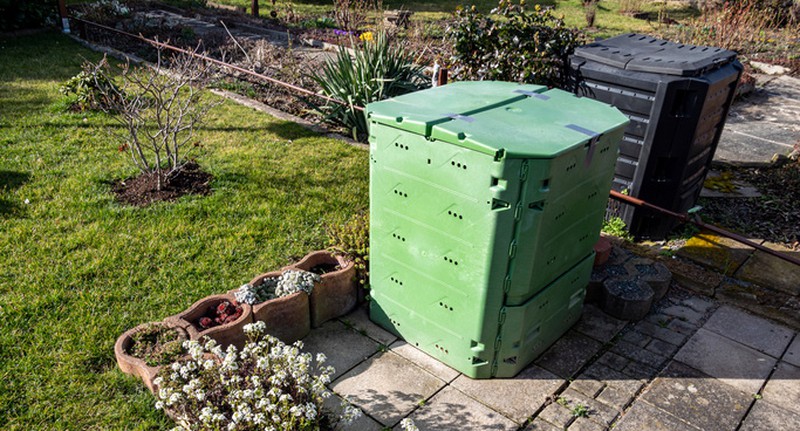Details to consider when choosing a composter
When you use a composter you are recycling the organic waste produced in your home, garden or orchard, to improve the quality of the soil in those places where your most precious plants grow. Using organic waste to turn it into natural fertilizer is the easiest way to help protect the environment by restoring the nutrients needed for soil fertility.
How a composter works
The composter consists of an enclosed space where organic waste is transformed into a heterogeneous-looking material, known as compost, dark brown in colour and with a characteristic smell of rainforest soil, although its consistency is dry. This compost, recreated at home, will enrich the natural humus in the soil and favour the growth of healthy and strong plants. To obtain a compost suitable for application, 3 to 4 months must have passed since the beginning of the process; if the components are crushed or chopped, the faster the decomposition process will be completed.
For the decomposition process to be successful inside the composter, the Brycus advice I give you is to watch very well the residues you are going to introduce in it. You must place dry waste such as dry leaves or branches cut into pieces, ash, paper or cardboard, eggshells, among others; wet waste such as vegetable or fruit remains, green or fresh pruning and any fresh organic waste. Never place plastic, domestic excrements, materials with chemical additives or varnishes, or oils or fats. You must place them alternately in layers: the first layer should be of dry material, with a thickness of 15 to 20 cm, then a wet or green layer of double thickness, and so on until completing the height of the composter; it is advisable to add some soil from the garden to promote aeration of the whole. Finally you should spray it lightly to obtain adequate moisture for the development of microorganisms that will intervene in the decomposition process.
Brycus advice for choosing the composter
There are many and varied ways to carry out the process of composting: from straw placed in a corral where cows, pigs or birds enrich the trampled straw with their excrement, to modern prefabricated composters made of wood, plastic, mixed, or of special industrial use for companies that generate large quantities of organic waste. Here are some of them:
- Wooden composters. Resistant to external agents; Ideal for large farms, to be placed outdoors, in shady places. Easy to assemble and disassemble
- Plastic compactor. For gardens, small vegetable gardens or terraces; easy to use and odourless
- Special composters. They are designed for special requirements in terms of capacity or functionality, such as industrial, electrical or those with additional elements such as automatic product removal, among others
Visit our section of composters, choose the one that best suits your needs and that meets the characteristics you want, so that the final product is satisfactory.
Important factors in choosing a composter
Once you have chosen the type of composter that suits you, according to the Brycus tips above, you should take into account certain details to make your choice perfect:
- The material must withstand the intensity of planned use. For example, 100 kg of waste provides around 30 kg of compost.
- Must have special holes to allow oxygenation of the compost
- Resistance against rain or wind
- Type of base or bottom, according to the place where it is to be placed
- Easy handling for the introduction, mixing or extraction of the compost
- Easy to assemble, disassemble and move
- Rodent protection
- Acceptable aesthetics with the environment
Visit our composter section and you'll find additional ideas and tips to make your experience as productive as possible.






Nasi klienci nam ufają
Opinie naszych klientów
Otrzymuj nasze wiadomości